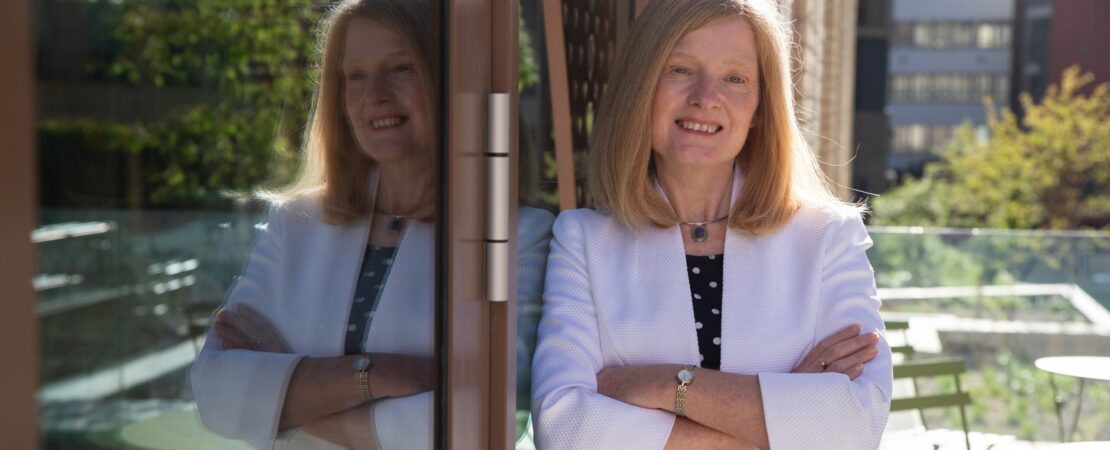
Success from engagement – how partnership working has always underpinned the North East LEP’s work and outcomes
The name of the North East Local Enterprise Partnership (LEP) has always told the story of its purpose. From the very beginning, our efforts have centred on cultivating knowledge and fostering connections. Our goal has been to orchestrate a unified response to the region’s needs, one that is grounded in solid evidence and collective action, says Helen Golightly, Chief Executive.
Unlike the regional development agencies before us, LEPs were formed without large teams or pots of funding. The very business model meant that the only way we were ever going to make an impact was by working across the region and through partnerships.
When we first launched, there was some scepticism and mistrust of LEPs. In fact, in the early days, the North East LEP was criticised for being inward-facing, needing more scrutiny, and spending public money without transparency. Whether justified or not, that perception had to change. If not, failure was inevitable.
The people-focus of the Strategic Economic Plan was fundamental to this step change.
We had to create a living, breathing Strategic Economic Plan and publicise it widely so that every single one of our key stakeholders understood the plan, what we were collectively trying to achieve, and how they could play their part in it. They had to be able to align their own business plans to it. The region needed to own the Plan and buy into it.
It needed to be something that people wanted to read, and when they did read it, find it useful rather than the document languishing online and never seeing the light of day. The North East Strategic Economic Plan had to allow stakeholders to see what sector opportunities there were in the North East, where the jobs would be, and enable leaders to monitor whether the supply and demand for skills were right.
It took a while to get the communications right and work out how best to engage with people on this.
We moved from big, weighty documents to concise, focused reporting, with ongoing engagement through briefings, events, newsletters and digital media. When stakeholders across the public, private and third sectors started to tell us they were aligning their strategic plans with the region’s plan, we knew we were finally making headway.
Making music together
Our leadership role has been about facilitation. I’ve always seen the job of the North East LEP as a little like being an orchestra conductor.
Whatever the playbook of the time, our job has been to identify the best musicians and partners, work out how best to unite them and keep them on the same page to deliver a stellar performance.
Our regional orchestra has played some nice tunes. I’d go so far as to say our business growth, skills and green energy successes are symphonies in their own right.
The right people at the right time
One of the North East LEP’s strengths has been knowing where to turn when, due to our oversight and understanding of the region and its key personalities. Our commitment to hearing diverse perspectives has seen us engage across the board, not just at an executive level.
We also brought the right people into the organisation who we could trust to be our ambassadors. Everyone in the LEP, not just the senior team, was recruited because they wanted to help us live our values of making a difference, being better together, thinking bigger, and doing the right thing. They are all the biggest champions of our region.
Our leadership role worked because at no point did we ever say we knew best. We never had a predetermined plan and never paid lip service.
When we needed to bring the region together, for example, during the COVID pandemic, EU Exit and refreshes of the economic plan, our focus was very much on gathering as many views as possible and listening closely. We reached out to experts in individual sectors because they were the ones experiencing challenges first hand and we needed to understand their perspectives closely.
The realities of political engagement
The devolution process itself has required a lot of input. The North East LEP can take some small credit for providing continuity during the occasionally turbulent process leading up to this and avoiding fractures at an economic and transport level.
Working in a political environment and with central government can be challenging. Over the years, we’ve had to take our time and find ways to bring people on the journey with us.
I’m proud that our team has always been able to forge deep relationships and create safe spaces where people can trust each other and take part in constructive debate. Our relationships with the civil service are seen as best in class and have generally led to better decision-making, funding and outcomes for the North East.
It’s been a privilege to work with our colleagues at the local authorities to prepare for the forthcoming transition to the North East Combined Authority, helping to make this as smooth as possible. It’s a fitting time to hand over the reins, knowing this commitment to partnership working will remain front and centre going forward.
I am very proud of my time as the Chief Executive and the positive impact we’ve made, as well as the foundations we’ve laid for the next iteration of economic development.
